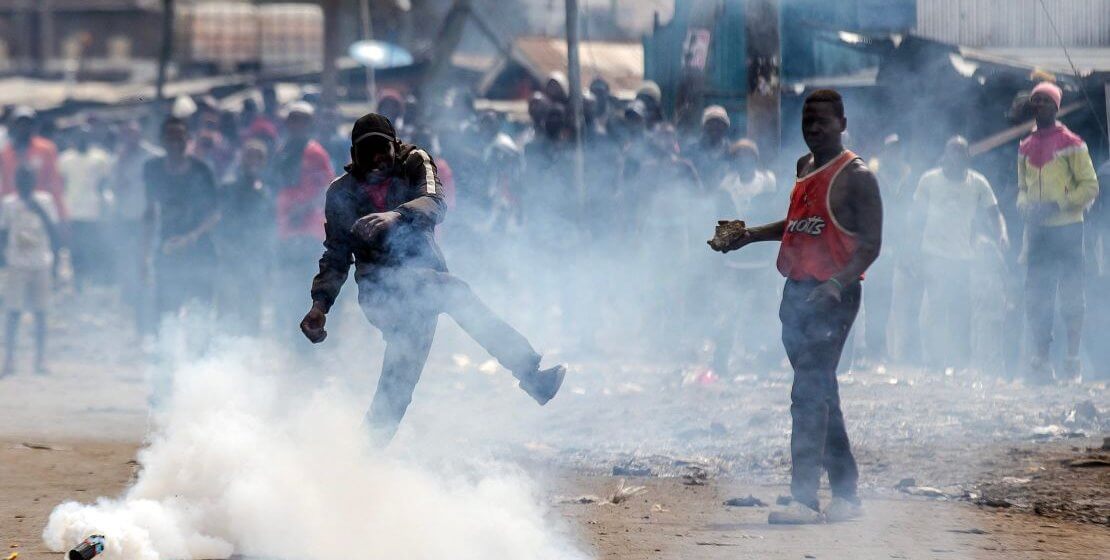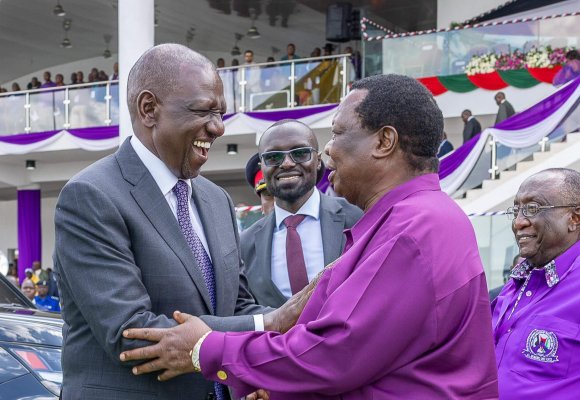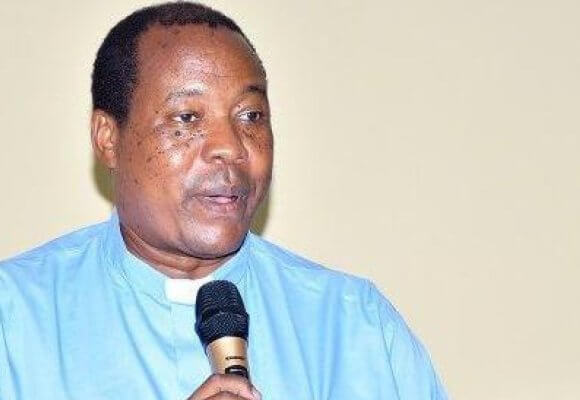|
LISTEN TO THIS THE AFRICANA VOICE ARTICLE NOW
Getting your Trinity Audio player ready...
|
Tensions escalated in Nairobi on Thursday as riot police used tear gas and water cannons to disperse crowds protesting against the government’s proposed $2.7 billion tax increase. Demonstrations occurred in multiple cities across Kenya, reflecting widespread public discontent.
In Nairobi, police confronted protesters near State House, President William Ruto’s office and residence, with tear gas. Earlier in the day, water cannons sprayed purple dye to clear demonstrators from the central business district and prevent them from reaching parliament. While the protests began peacefully, they quickly turned violent.
Tragically, a 29-year-old man, Rex Kanyike Masai, was fatally shot during the protests. Masai’s death was confirmed by a doctor at Bliss Hospital on Nairobi’s Moi Avenue, where he was pronounced dead. Witnesses reported that Masai, who was unarmed, was fleeing tear gas when he was shot. His death has sparked a wave of mourning and demands for justice on social media.
Amnesty International condemned the police’s use of excessive force, reporting over 100 arrests on Thursday. The Kenya Red Cross reported assisting 39 injured individuals, with eight in critical condition. The injured have been transferred to Kenyatta National Hospital for further treatment.
Police Inspector General Japhet Koome stated that authorities would not allow disruptions to key government operations. Protesters argue that the proposed tax increases will further burden Kenyans already facing economic challenges. “We are fighting for our future, not just against taxes,” said Theru Nderitu, a student protester.
The government has reconsidered some tax proposals due to public pressure. A parliamentary panel recommended on Tuesday that certain new taxes, including those on car ownership, bread, cooking oil, and financial transactions, be removed. However, the panel suggested increasing the fuel tax for road maintenance.
President Ruto, who was elected nearly two years ago with promises to support Kenya’s working poor, has faced significant opposition over these tax hikes. He defended the increases as necessary to reduce government borrowing but agreed to some changes based on the panel’s recommendations.
Protests also took place in other towns, including Nyeri, Nakuru, Eldoret, Isiolo, Mombasa, and Kisumu, with demonstrators urging lawmakers to reject the tax bill. Protesters held signs reading “We say no to economic dictatorship” and chanted “Ruto must go.” In Eldoret, police dispersed the crowds in the afternoon.
The International Monetary Fund has advised Kenya to boost revenues in the 2024/25 budget to reduce borrowing. Lawmakers debated the bill on Thursday, with a final vote expected next Tuesday. Although Ruto’s coalition holds a majority, some members have expressed concerns about the bill.
Parliamentary Majority Leader Kimani Ichung’wah announced that a vote on the bill’s amendments would take place on Tuesday. Ndindi Nyoro, chair of the parliament’s budget committee, warned that removing some tax hikes could create a 200 billion Kenyan shilling ($1.56 billion) revenue shortfall for the 2024/25 budget, necessitating equivalent spending cuts.
Masai’s death has intensified calls for accountability. “We will print posters with Rex’s face and name around Nairobi terming him as a hero. We will cover the burial expenses as well,” said Hanifa Farsafi, a protest organizer, on X. “My heart is absolutely broken… but it was not in vain,” she added.
Faith Odhiambo, president of the Law Society of Kenya, condemned the police’s actions, describing the arrests of protesters as “illegal” and their force as “brutal.” Despite the outcry, the bill passed its second reading in parliament on Thursday. The protesters remain resolute, demanding that lawmakers reject the entire bill.
The government defends the tax measures as essential to managing Kenya’s national debt, which stands at nearly $80 billion.











LEAVE A COMMENT
You must be logged in to post a comment.